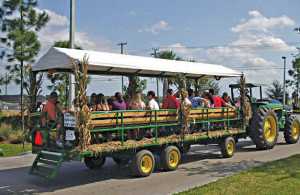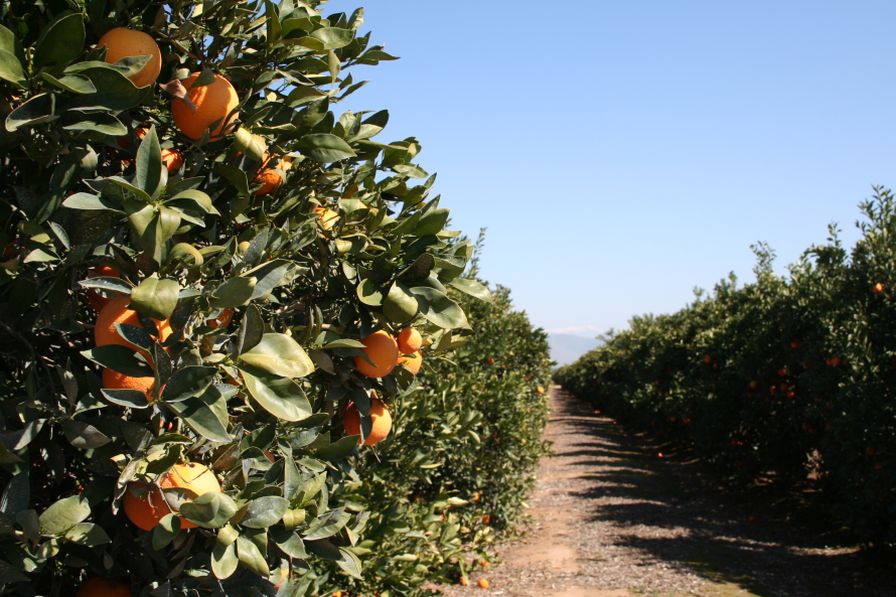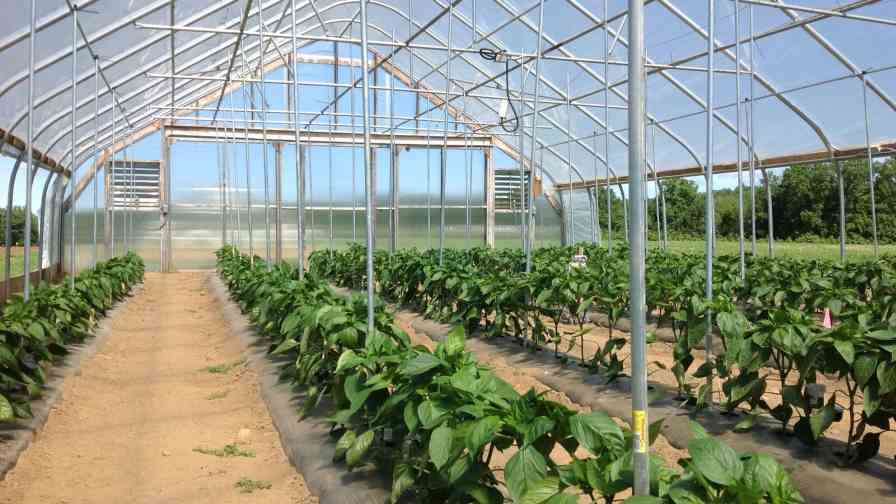Florida Clarifies Its Agritourism Law

Photo courtesy of Bedner’s Farm Fresh Market
Three years after passing a law protecting farms who participate in agritourism, the state of Florida has passed another version that clarifies questions that arose, University of Florida/Institute Of Food And Agricultural Sciences Extension reports.
Florida has a lot of agritourism: 105 million visitors spending more than $85 billion in 2015, according to VISIT Florida. The number of Florida farms offering recreational experiences more than doubled from 281 in 2007 to 724 in 2012, according to USDA Census of Agriculture data.
So when the 2013 Agritourism Law was passed, farm marketers were relieved.
It changed in the Florida Statutes to reduce liability for agritourism farms, so long as a warning sign is posted indicating participation in agritourism activities involves inherent risks, and notifying participants that by choosing to participate they are accepting these risks. The change didn’t protect gross negligence, but provided some assurance for farms on the fence about opening their farm to the public.
Included in those changes was language to prevent local authorities from imposing regulations to prevent agricultural operations from engaging in agritourism,
After the ink dried on the law, however, many questions arose. Several operations found themselves in difficult circumstances, as local authorities grappled with the new law, which lacked a reference to enforcement of existing local regulations. The definition of agritourism itself was a point of confusion, especially where the on-farm activities were not clearly related to agriculture. Rustic on-farm weddings have become a hot trend but were not specifically cited as an agritourism activity.
Enter the 2016 improvements.
The 2016 edition clarifies these questions with specific language to address the points of contention. Local governments are prohibited from not only from enacting new regulations to limit agritourism, but also from enforcing existing regulations. The concerns of local government were also addressed, however, with the addition of language that allows them power to address “substantial offsite impacts” of agritourism activities. Language to describe an agritourism activity was expanded and specifically includes civic and ceremonial activities.
One point that has not changed is that these activities are regarded as agritourism only when conducted on land that is classified as agricultural, i.e. land granted agricultural assessment value with the local property appraiser. Operations conducting similar activities on non-agriculturally classified land were hoping for a change here, however many fear this could result in issues down the line.
The bottom line here, says Gene McAvoy, County Extension Director for UF/IFAS Hendry County Extension, is that local governments now have more specific legal guidance on agritourism, which should make for a smoother path for farms looking to open their farms to the public. Hosting weddings seemed to be a common issue of concern, so having them and other ceremonies specifically included in agritourism activities should remove uncertainty for governments and make it easier for farms to offer these services.
This article is an edited version of the UF/IFAS-authored article “New & Improved Agritourism Law: What Does It Mean?”
Below is a copy of the law for you to read:
2016 Florida Statues 570.85- 89
570.85 Agritourism.—
1.It is the intent of the Legislature to promote agritourism as a way to support bona fide agricultural production by providing a secondary stream of revenue and by educating the general public about the agricultural industry. It is also the intent of the Legislature to eliminate duplication of regulatory authority over agritourism as expressed in this section. Except as otherwise provided for in this section, and notwithstanding any other provision of law, a local government may not adopt or enforce a local ordinance, regulation, rule, or policy that prohibits, restricts, regulates, or otherwise limits an agritourism activity on land classified as agricultural land under s. 193.461. This subsection does not limit the powers and duties of a local government to address substantial offsite impacts of agritourism activities or an emergency as provided in chapter 252.
2.The Department of Agriculture and Consumer Services may provide marketing advice, technical expertise, promotional support, and product development related to agritourism to assist the following in their agritourism initiatives: Enterprise Florida, Inc.; convention and visitor bureaus; tourist development councils; economic development organizations; and local governments. In carrying out this responsibility, the department shall focus its agritourism efforts on rural and urban communities.
570.86 Definitions.—As used in ss. 570.85-570.89, the term:
1.“Agritourism activity” means any agricultural related activity consistent with a bona fide farm, livestock operation, or ranch or in a working forest which allows members of the general public, for recreational, entertainment, or educational purposes, to view or enjoy activities, including farming, ranching, historical, cultural, civic, ceremonial, training and exhibition, or harvest-your-own activities and attractions. An agritourism activity does not include the construction of new or additional structures or facilities intended primarily to house, shelter, transport, or otherwise accommodate members of the general public. An activity is an agritourism activity regardless of whether the participant paid to participate in the activity.
2.“Agritourism operator” means a person who is engaged in the business of providing one or more agritourism activities, whether for compensation or not for compensation.
3.“Farm” means the land, buildings, support facilities, machinery, and other appurtenances used in the production of farm or aquaculture products, including land used to display plants, animals, farm products, or farm equipment to the public.
4.“Farm operation” has the same meaning as in s. 823.14.
5.“Inherent risks of agritourism activity” means those dangers or conditions that are an integral part of an agritourism activity including certain hazards, such as surface and subsurface conditions; natural conditions of land, vegetation, and waters; the behavior of wild or domestic animals; and the ordinary dangers of structures or equipment ordinarily used in farming and ranching operations. The term also includes the potential of a participant to act in a negligent manner that may contribute to the injury of the participant or others, including failing to follow the instructions given by the agritourism operator or failing to exercise reasonable caution while engaging in the agritourism activity.
570.87 Agritourism participation impact on land classification.—
1. In order to promote and perpetuate agriculture throughout the state, farm operations are encouraged to engage in agritourism. The conduct of agritourism activity on a bona fide farm or on agricultural lands classified as such pursuant to s. 193.461 does not limit, restrict, or divest the land of that classification as long as such lands classified as agricultural remain used primarily for bona fide agricultural purposes.
2. Local governments and agricultural representatives shall meet for the purpose of discussing the benefits of agritourism to local economies and opportunities for cooperation, conflict resolution, regulatory streamlining, and incentives.
570.88 Liability.—
1. Except as provided in subsection (2), an agritourism operator, his or her employer or employee, or the owner of the underlying land on which the agritourism occurs is not liable for injury or death of, or damage or loss to, a participant resulting from the inherent risks of agritourism activities if the notice of risk required under s. 570.89 is posted as required. Except as provided in subsection (2), a participant, or a participant’s representative, may not maintain an action against or recover from an agritourism operator, his or her employer or employee, or the owner of the underlying land on which the agritourism occurs for the injury or death of, or damage or loss to, an agritourism participant resulting exclusively from any of the inherent risks of agritourism activities.
2. In the event of the injury or death of, or damage or loss to, an agritourism participant, subsection (1) does not prevent or limit the liability of an agritourism operator or his or her employer or employee or the owner of the underlying land on which the agritourism occurs if he or she: 1.Commits an act or omission that constitutes gross negligence or willful or wanton disregard for the safety of the participant, and that act or omission proximately causes injury, damage, or death to the participant; or intentionally injures the participant.
3. The limitation on legal liability afforded by this section to an agritourism operator or his or her employer or employee or the owner of the underlying land on which the agritourism occurs is in addition to any limitations of legal liability otherwise provided by law.
570.89 Posting and notification.—
1. Each agritourism operator shall post and maintain signs that contain the notice of inherent risk specified in subsection (2). 1. A sign shall be placed in a clearly visible location at the entrance to the agritourism location and at the site of the agritourism activity. The notice of inherent risk must consist of a sign in black letters, with each letter a minimum of 1 inch in height, with sufficient color contrast to be clearly visible.
2. Each written contract entered into by an agritourism operator for the provision of professional services, instruction, or the rental of equipment to a participant, regardless of whether the contract involves agritourism activities on or off the location or at the site of the agritourism activity, must contain in clearly readable print the notice of inherent risk specified in subsection (2). The sign and contract required under subsection (1) must contain the following notice of inherent risk:
WARNING
Under Florida law, an agritourism operator is not liable for injury or death of, or damage or loss to, a participant in an agritourism activity conducted at this agritourism location if such injury, death, damage, or loss results from the inherent risks of the agritourism activity. Inherent risks of agritourism activities include, among others, risks of injury inherent to land, equipment, and animals, as well as the potential for you to act in a negligent manner that may contribute to your injury, death, damage, or loss. You are assuming the risk of participating in this agritourism activity.
3. Failure to comply with this section prevents an agritourism operator, his or her employer or employee, or the owner of the underlying land on which the agritourism occurs from invoking the privileges of immunity provided by this section.









